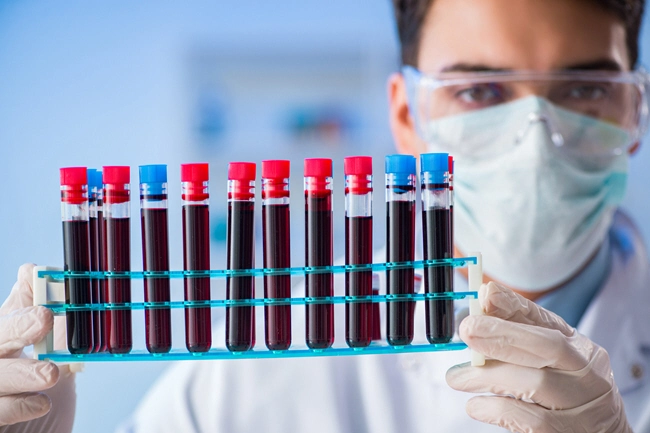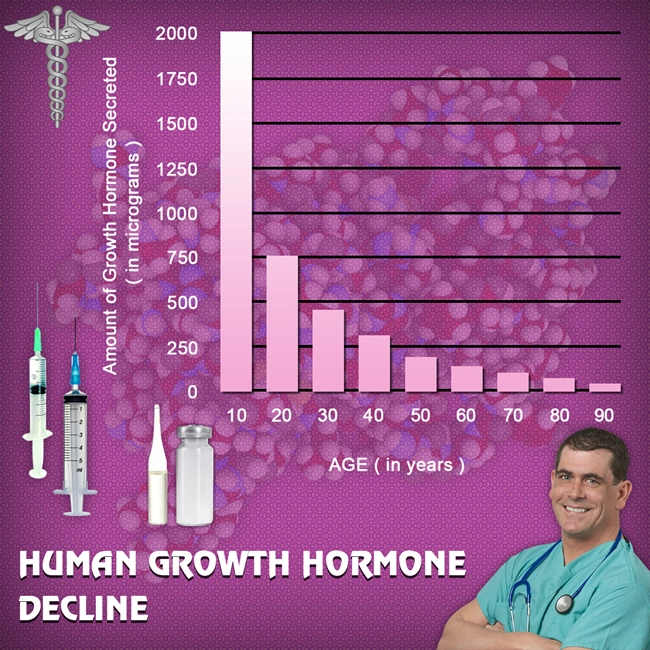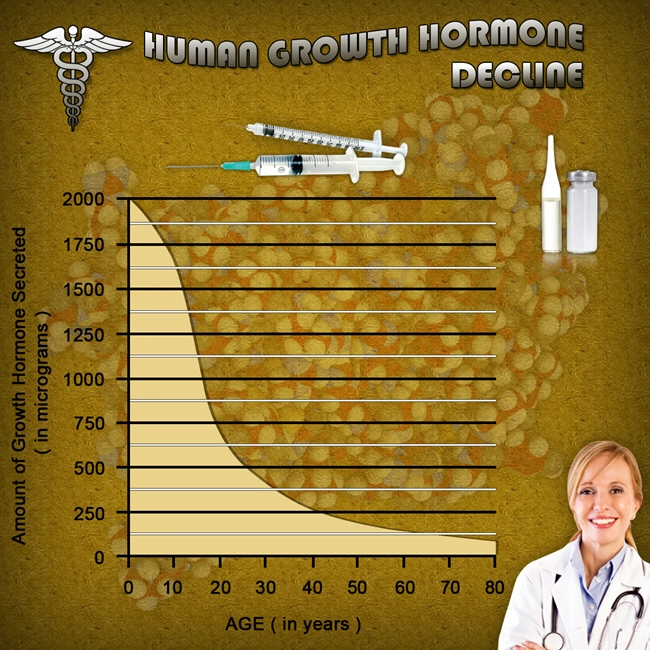
Introduction
As men age, they often encounter a variety of physiological changes, one of which includes alterations in their hormonal milieu. These changes can manifest in various ways, including a decline in erectile function, commonly referred to as soft erections. This article delves into the intricate relationship between age-related hormonal fluctuations and their potential impact on erectile health among American males. By understanding these endocrine influences, men can better navigate the challenges of aging and seek appropriate interventions to maintain their quality of life.
The Role of Testosterone in Erectile Function
Testosterone, the primary male sex hormone, plays a pivotal role in maintaining erectile function. As men age, a gradual decline in testosterone levels, known as late-onset hypogonadism, can occur. This decline is associated with a decrease in libido and can contribute to the development of soft erections. Studies have shown that men with lower testosterone levels are more likely to experience erectile dysfunction (ED), highlighting the hormone's critical role in sexual health.
Estrogen and Its Unexpected Influence
While testosterone is often the focus when discussing male sexual health, estrogen also plays a significant role. As men age, the balance between testosterone and estrogen shifts, with a relative increase in estrogen levels. This shift can lead to a condition known as hyperestrogenism, which has been linked to ED. The conversion of testosterone to estrogen via the enzyme aromatase increases with age, further complicating the hormonal landscape and potentially contributing to soft erections.
The Impact of Thyroid Hormones
Thyroid hormones, which regulate metabolism and energy levels, also influence erectile function. Both hypothyroidism and hyperthyroidism can lead to ED. Hypothyroidism, characterized by low thyroid hormone levels, can result in decreased libido and soft erections due to reduced energy and metabolic activity. Conversely, hyperthyroidism, marked by excessive thyroid hormone production, can cause ED by increasing anxiety and stress, which can negatively impact sexual performance.
Cortisol and Stress-Related Hormonal Changes
Cortisol, the body's primary stress hormone, can also affect erectile function. Chronic stress leads to elevated cortisol levels, which can disrupt the delicate balance of other hormones, including testosterone. High cortisol levels have been associated with decreased libido and ED, as they can interfere with the physiological processes necessary for achieving and maintaining an erection. Managing stress through lifestyle modifications and, if necessary, medical intervention, can help mitigate these effects.
Prolactin and Its Role in Sexual Health
Prolactin, a hormone primarily associated with lactation in females, also plays a role in male sexual health. Elevated prolactin levels, known as hyperprolactinemia, can lead to ED by inhibiting the release of gonadotropin-releasing hormone (GnRH), which in turn reduces testosterone production. Conditions such as pituitary tumors can cause hyperprolactinemia, and addressing these underlying issues is crucial for restoring normal erectile function.
Lifestyle Factors and Hormonal Balance
Lifestyle factors such as diet, exercise, and sleep quality can significantly influence hormonal balance and, consequently, erectile function. A diet rich in nutrients that support hormonal health, regular physical activity, and adequate sleep can help maintain optimal hormone levels and reduce the risk of ED. Conversely, poor lifestyle choices can exacerbate hormonal imbalances and contribute to soft erections.
Conclusion
The relationship between age-related hormonal changes and soft erections in American males is complex and multifaceted. Understanding the roles of testosterone, estrogen, thyroid hormones, cortisol, and prolactin in erectile function can provide valuable insights into managing ED. By addressing hormonal imbalances through medical interventions and lifestyle modifications, men can improve their sexual health and overall well-being. As research continues to unravel the endocrine puzzle, American males can look forward to more effective strategies for maintaining robust erectile function throughout their lives.
Contact Us Today For A Free Consultation
Dear Patient,
Once you have completing the above contact form, for security purposes and confirmation, please confirm your information by calling us.
Please call now: 1-800-380-5339.
Welcoming You To Our Clinic, Professor Tom Henderson.

- Decoding the Enigma of Soft Erections: A Comprehensive Exploration [Last Updated On: February 25th, 2025] [Originally Added On: February 25th, 2025]
- Unveiling the Complexities behind Reduced Virility: A Journey into the Science of Soft Erections [Last Updated On: February 26th, 2025] [Originally Added On: February 26th, 2025]
- Broadening the Masculine Spectrum: Navigating Soft Erections Confidently [Last Updated On: February 27th, 2025] [Originally Added On: February 27th, 2025]
- Transforming Sexual Health: Enhancing Male Virility through Holistic Lifestyle Adjustments [Last Updated On: February 28th, 2025] [Originally Added On: February 28th, 2025]
- Unheard Voices: Understanding and Navigating Soft Erections [Last Updated On: February 28th, 2025] [Originally Added On: February 28th, 2025]
- Understanding the Nexus: Psychological Stress and Its Impact on Erection Function [Last Updated On: March 1st, 2025] [Originally Added On: March 1st, 2025]
- Demystifying Men's Health: Understanding Erectile Resilience and its Multifaceted Dimensions [Last Updated On: March 2nd, 2025] [Originally Added On: March 2nd, 2025]
- Enhancing Erectile Function Through Exercise: Understanding the Role of Physical Activity in Improving Sexual Health and Erection Quality [Last Updated On: March 3rd, 2025] [Originally Added On: March 3rd, 2025]
- Nutrition's Role in Enhancing Male Erectile Function and Health [Last Updated On: March 4th, 2025] [Originally Added On: March 4th, 2025]
- Soft Erections in Aging Men: Causes, Diagnosis, and Effective Management Strategies [Last Updated On: March 5th, 2025] [Originally Added On: March 5th, 2025]
- Exploring the Link Between Sleep Quality and Erectile Function in Men [Last Updated On: March 5th, 2025] [Originally Added On: March 5th, 2025]
- Managing Mild Erectile Dysfunction: Strategies for Enhancing Intimacy and Well-being [Last Updated On: March 6th, 2025] [Originally Added On: March 6th, 2025]
- Enhancing Male Sexual Health: The Role of Weight Loss in Combating Soft Erections [Last Updated On: March 6th, 2025] [Originally Added On: March 6th, 2025]
- Optimizing Male Hormones for Sexual Health: Balancing Testosterone and Estrogen Dynamics [Last Updated On: March 7th, 2025] [Originally Added On: March 7th, 2025]
- The Vascular Link: Understanding Blood Flow in Erectile Dysfunction and Vascular Health [Last Updated On: March 8th, 2025] [Originally Added On: March 8th, 2025]
- The Intersection of Cardiovascular Health and Erectile Function: Lifestyle Strategies for Men's Health [Last Updated On: March 9th, 2025] [Originally Added On: March 9th, 2025]
- Enhancing Male Sexual Health: The Role of Meditation and Mindfulness in Combating Soft Erections [Last Updated On: March 9th, 2025] [Originally Added On: March 9th, 2025]
- Debunking Myths: The Truth About Soft Erections in American Men [Last Updated On: March 14th, 2025] [Originally Added On: March 12th, 2025]
- Navigating the Impact of Medications on Male Sexual Health: Understanding Drug-Induced Erectile Challenges [Last Updated On: March 13th, 2025] [Originally Added On: March 13th, 2025]
- Mastering Stress: Strategies to Enhance Male Sexual Performance and Combat Soft Erections [Last Updated On: March 15th, 2025] [Originally Added On: March 15th, 2025]
- Smoking's Impact on Erectile Health: Understanding and Overcoming Soft Erections [Last Updated On: March 17th, 2025] [Originally Added On: March 17th, 2025]
- Diagnosing Soft Erections: Comprehensive Approaches for American Males' Urological Health [Last Updated On: March 18th, 2025] [Originally Added On: March 18th, 2025]
- Pelvic Floor Exercises: Enhancing Men's Sexual Health and Overall Wellness [Last Updated On: March 18th, 2025] [Originally Added On: March 18th, 2025]
- Alcohol's Impact on Erection Quality: Insights and Management Strategies [Last Updated On: March 18th, 2025] [Originally Added On: March 18th, 2025]
- Soft Erections in Young Men: Causes, Impacts, and Holistic Management Strategies [Last Updated On: March 18th, 2025] [Originally Added On: March 18th, 2025]
- Vitamins and Minerals: Enhancing Erection Quality in American Men Naturally [Last Updated On: March 19th, 2025] [Originally Added On: March 19th, 2025]
- Herbal Remedies for Enhancing Erectile Health in American Males [Last Updated On: March 19th, 2025] [Originally Added On: March 19th, 2025]
- Understanding and Managing Soft Erections: Causes, Diagnosis, and Treatment Options [Last Updated On: March 20th, 2025] [Originally Added On: March 20th, 2025]
- Counseling's Role in Treating Soft Erections: A Holistic Approach [Last Updated On: March 20th, 2025] [Originally Added On: March 20th, 2025]
- Soft Erections: Understanding, Communicating, and Overcoming ED Together [Last Updated On: March 21st, 2025] [Originally Added On: March 21st, 2025]
- Soft Erections and Mental Health: Strategies for American Men [Last Updated On: March 21st, 2025] [Originally Added On: March 21st, 2025]
- Work Stress Impact on American Males' Sexual Health: Strategies and Solutions [Last Updated On: March 21st, 2025] [Originally Added On: March 21st, 2025]
- Managing Soft Erections: Diet, Exercise, Stress, Sleep, and Medical Care [Last Updated On: March 22nd, 2025] [Originally Added On: March 22nd, 2025]
- Understanding Soft Erections: Causes, Impacts, and Holistic Treatment Options for American Males [Last Updated On: March 23rd, 2025] [Originally Added On: March 23rd, 2025]
- Genetic Factors in Erectile Dysfunction: Understanding Soft Erections in American Men [Last Updated On: March 23rd, 2025] [Originally Added On: March 23rd, 2025]
- Nitric Oxide's Role in Erections: Understanding and Enhancing Function [Last Updated On: March 23rd, 2025] [Originally Added On: March 23rd, 2025]
- Managing Soft Erections: Behavioral Strategies for Improved Sexual Health [Last Updated On: March 23rd, 2025] [Originally Added On: March 23rd, 2025]
- Exploring Alternative Medicine for Enhanced Erectile Health in American Males [Last Updated On: March 23rd, 2025] [Originally Added On: March 23rd, 2025]
- Overcoming Soft Erections: Success Stories and Strategies for American Men [Last Updated On: March 23rd, 2025] [Originally Added On: March 23rd, 2025]
- Redefining Sexual Success: Embracing Vulnerability and Holistic Health for Confidence [Last Updated On: March 23rd, 2025] [Originally Added On: March 23rd, 2025]
- Soft Erections vs. Erectile Dysfunction: Understanding Differences and Solutions for Men [Last Updated On: March 24th, 2025] [Originally Added On: March 24th, 2025]
- Physical Therapy's Role in Treating Soft Erections Among American Males [Last Updated On: March 24th, 2025] [Originally Added On: March 24th, 2025]
- PDE5 Inhibitors: Revolutionizing ED Treatment for American Males [Last Updated On: March 24th, 2025] [Originally Added On: March 24th, 2025]
- Innovative Technologies and Therapies for Treating Soft Erections in American Males [Last Updated On: March 24th, 2025] [Originally Added On: March 24th, 2025]
- Obesity and Soft Erections: Enhancing Sexual Health Through Weight Management [Last Updated On: March 24th, 2025] [Originally Added On: March 24th, 2025]
- Exploring Alternative Therapies for Erectile Dysfunction: A Holistic Approach [Last Updated On: March 24th, 2025] [Originally Added On: March 24th, 2025]
- Biofeedback Therapy: Enhancing Erectile Control in American Males with Soft Erections [Last Updated On: March 25th, 2025] [Originally Added On: March 25th, 2025]
- Economic Impact of Soft Erections on American Men's Quality of Life and Finances [Last Updated On: March 25th, 2025] [Originally Added On: March 25th, 2025]
- Heart Health and Erections: Understanding the Cardiovascular Connection [Last Updated On: March 25th, 2025] [Originally Added On: March 25th, 2025]
- Prostate Health's Impact on Soft Erections: Insights and Management for American Men [Last Updated On: March 25th, 2025] [Originally Added On: March 25th, 2025]
- Managing Soft Erections: Preparing for Doctor Visits and Understanding Treatment Options [Last Updated On: March 25th, 2025] [Originally Added On: March 25th, 2025]
- Chronic Inflammation's Impact on Sexual Health: Mechanisms and Management Strategies [Last Updated On: March 25th, 2025] [Originally Added On: March 25th, 2025]
- Understanding and Treating Soft Erections: Causes, Diagnosis, and Options for American Males [Last Updated On: March 26th, 2025] [Originally Added On: March 26th, 2025]
- Sleep Disorders and Soft Erections: Impacts and Management Strategies for Men [Last Updated On: March 26th, 2025] [Originally Added On: March 26th, 2025]
- Soft Erections and Metabolic Syndrome: A Critical Link in American Males [Last Updated On: March 26th, 2025] [Originally Added On: March 26th, 2025]
- Understanding and Overcoming Soft Erections: Impact, Intimacy, and Solutions [Last Updated On: March 26th, 2025] [Originally Added On: March 26th, 2025]
- Digital Health Solutions Transforming Erectile Health Management for American Men [Last Updated On: March 26th, 2025] [Originally Added On: March 26th, 2025]
- Stress Management Techniques to Improve Erectile Function in American Males [Last Updated On: March 26th, 2025] [Originally Added On: March 26th, 2025]
- Cardiovascular Exercise Enhances Erection Quality in American Males [Last Updated On: March 26th, 2025] [Originally Added On: March 26th, 2025]
- Environmental Toxins and Their Impact on Male Erectile Health in America [Last Updated On: March 26th, 2025] [Originally Added On: March 26th, 2025]
- Understanding Soft Erections: Causes, Physiology, and Treatment Options for American Men [Last Updated On: March 27th, 2025] [Originally Added On: March 27th, 2025]
- Hormonal Health and Erections: A Comprehensive Guide for American Men [Last Updated On: March 27th, 2025] [Originally Added On: March 27th, 2025]
- Medication Side Effects and Soft Erections: Causes, Management, and Solutions [Last Updated On: March 27th, 2025] [Originally Added On: March 27th, 2025]
- Innovative Solutions for Erection Challenges: Vacuum Pumps and Beyond [Last Updated On: March 27th, 2025] [Originally Added On: March 27th, 2025]
- Understanding Soft Erections: Causes, Treatments, and Breaking Stigmas [Last Updated On: March 28th, 2025] [Originally Added On: March 28th, 2025]
- Superfoods Boost Vascular Health, Enhancing Erectile Function in American Males [Last Updated On: March 28th, 2025] [Originally Added On: March 28th, 2025]
- Managing Soft Erections: A Mindfulness Approach for American Men [Last Updated On: March 28th, 2025] [Originally Added On: March 28th, 2025]
- Overcoming Soft Erections: Psychological Strategies and Self-Esteem Enhancement [Last Updated On: March 29th, 2025] [Originally Added On: March 29th, 2025]
- Enhancing Sexual Stamina and Managing Soft Erections: Techniques and Strategies [Last Updated On: March 29th, 2025] [Originally Added On: March 29th, 2025]
- Sedentary Lifestyles and Erection Quality: Benefits of Physical Activity for American Males [Last Updated On: March 30th, 2025] [Originally Added On: March 30th, 2025]
- Nerve Health's Crucial Role in Enhancing Erectile Function for American Males [Last Updated On: March 30th, 2025] [Originally Added On: March 30th, 2025]
- Redefining Masculinity: Embracing Soft Erections and Enhancing Sexual Confidence [Last Updated On: March 30th, 2025] [Originally Added On: March 30th, 2025]
- Innovative Research and Future Prospects in Treating Soft Erections [Last Updated On: April 2nd, 2025] [Originally Added On: April 2nd, 2025]
- Lifestyle Changes to Enhance Erection Quality and Combat Erectile Dysfunction [Last Updated On: April 4th, 2025] [Originally Added On: April 4th, 2025]
- Soft Erections: Understanding Impact and Navigating Intimacy in American Relationships [Last Updated On: April 4th, 2025] [Originally Added On: April 4th, 2025]
- Vascular Health's Crucial Role in Enhancing Erection Quality for American Males [Last Updated On: April 6th, 2025] [Originally Added On: April 6th, 2025]
- Soft Erections: Impact on Mental Health, Relationships, and Quality of Life in American Men [Last Updated On: April 6th, 2025] [Originally Added On: April 6th, 2025]
- Cortisol's Impact on Erectile Performance in American Males: Causes and Management [Last Updated On: April 7th, 2025] [Originally Added On: April 7th, 2025]
- Breaking Silence on Soft Erections: Fostering Open Dialogue for Healthier Relationships [Last Updated On: April 7th, 2025] [Originally Added On: April 7th, 2025]
- Psychotherapy's Role in Treating Emotional Effects of Soft Erections in American Males [Last Updated On: April 9th, 2025] [Originally Added On: April 9th, 2025]








